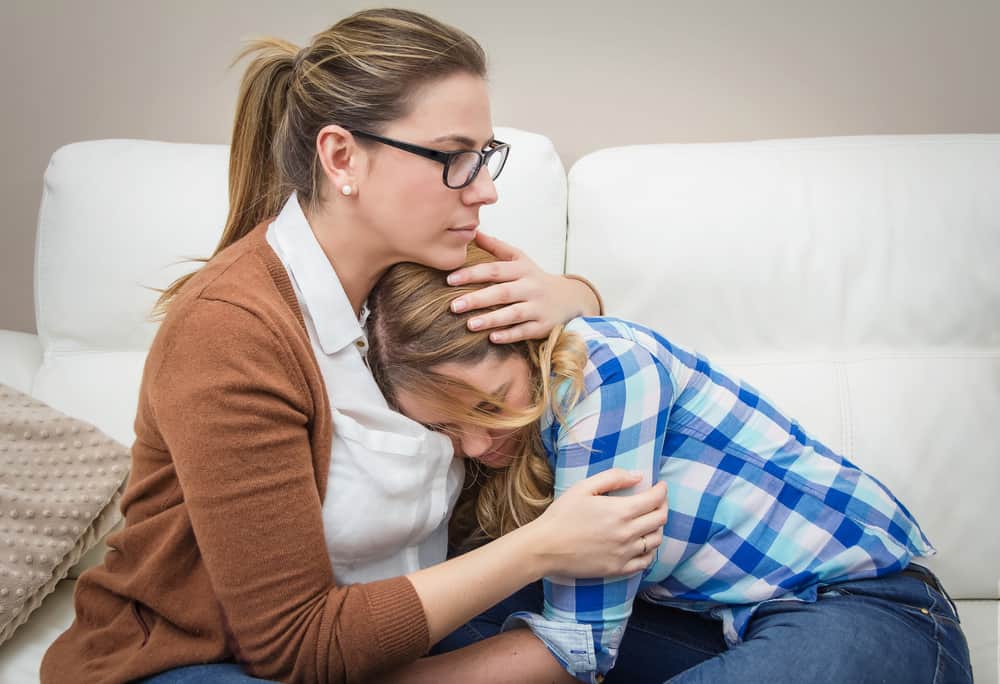I am the de-facto expert amongst my friends when it comes to having sick, dead, or dying parents. This is, I guess, a thing that happens when your own parents have been sick, dying, and eventually, become dead.
In light of the fact that the dead-parent shittiness has just happened to a dear friend, I’m back in the familiar position of being bombarded by mutual friends, who see me as an authority on the subject, asking what they should do. This is by no means an exhaustive list, and grief is a really personal thing to which everyone has their own reactions. But, from what I can remember from the immediate after effects of my parents’ respective passings (i.e. what I haven’t repressed), here are a few things you can do and keep in mind.
Let them know you’re there
Some people want to be smothered, some want to be left the hell alone, but either way I think best practice is to send a quick note when you hear the news just to let them know you know (sometimes even telling people can be draining), offer your sympathies, let them know they are loved and that you’re there for them. If you knew their parent personally, add in a little anecdote about a good memory you have of them or even a nice quality you admired in them (“Your mum was always so sweet to me and made me tea that one time!”) It’s a small thing, but it will be a comfort.
Offer your help but be specific
It’s great that you want to help, but pestering your friend with “what can I dooooo???” texts will just raise their already skyrocketing stress levels. Think about what you’re willing and able to do and give a specific offer. Do you have a car? Great! Offer to chauffeur anyone who needs a ride anywhere (the days immediately after death are full of appointments with lawyers and funeral homes and accountants). Are family members coming out of town for the funeral and have nowhere to stay? Offer your space if you can. Weirdly enjoy housework? Wash your buddy’s sheets or come over with your vacuum—a clean space is a calm space and a refuge amongst the world falling apart. And, of course
Feed them
First of all, this helps you make sure they’re actually eating (a thing I stopped doing without even realizing it after my mom died), and secondly, it’s a huge help. Not having to put any energy into thinking about making or obtaining meals is one less thing to worry about. Our next-door neighbor sent us over a tray of wraps and sandwiches, which was a lifesaver with all the extra family members in our house. We also got a few Edible Arrangements sent to our door which were all pretty fantastic—easy to snack on and relatively healthy.
Make a care kit
When our mom died, our cousins snuck over to us before the funeral started with a home made Funeral Care Kit complete with bottled water, mints and gum, tissues, granola bars, and a lint roller (Drake would approve). There may have even been an Archie comic—the memories have faded. It was a really sweet gesture that had the added bonus of actually being practical and even brought a much-needed moment of levity on a terribly sad day.
It’s not you, it’s them
This is probably the hardest one, but try to keep in mind that if you happen to catch your friend in a particularly bad moment and they end up lashing out at you, it’s not personal. The death of a parent or other close family member is extremely emotionally draining and a terrifying time. Grieving people are generally not the most sane people—that’s why every expert will tell you not to make any rash decisions immediately following a traumatic event. (Hi, fake-out breakup!) Let them ride their grief however it manifests. And if they hit you with some really dark humour, cringe and laugh appreciatively.
Be there when the rush is over
All those offers of “being there” and “if you ever want to talk” seem to fade away after the casket’s been lowered. Remember that the grieving process is ongoing and that your friend will be dealing with this huge life change for years to come. Don’t wait for them to reach out to you—reach out to them a few weeks and months after the fact. It doesn’t have to be anything extravagant—they might not even want to talk, but just letting them know that you haven’t forgotten is incredibly meaningful and appreciated.
One last, random tip. If you’re going to a funeral home and signing the guest book, don’t actually sign the guest book. The family will look at it later to see who showed up—make their lives easier and print your name instead of making them try to decipher your John Hancock.



 Follow Us On Instagram
Follow Us On Instagram
